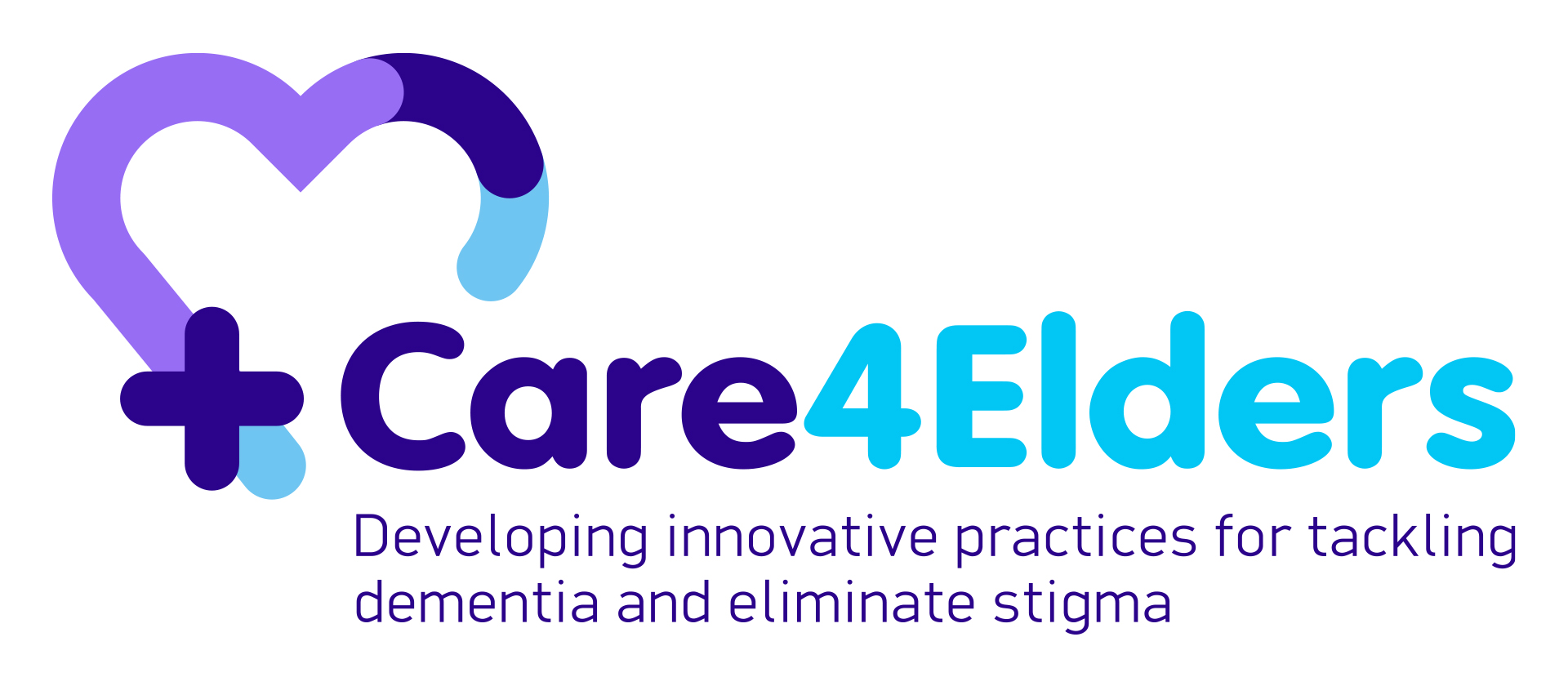Care4Elders

Developing innovative practices for tackling dementia and eliminate stigma
Funding Programme
EU4Health
Project Number
101161394
Duration
09/2024 - 08/2027
Budget
439.367,62 €
Countries
Greece, Luxembourg, Czech Republic, Portugal, Germany, Malta
Visit the Project's Website
Follow the project on Social Media
Care4Elders
Care4Elders project, in line with Healthier Together’ EU NCD Initiative, aims to, on the one hand, enhance the access to patient-centered & long-term elderly care for people with dementia, introducing innovative, digital and targeted practices to the elderly healthcare workforce and on the other hand, change attitudes towards dementia, raising awareness about dementia as a public health priority.
In particular, Care4Elders project has been designed to support and upskill elderly care workforce in order to be able to offer a targeted and high-quality care to people with dementia, to promote and enhance early detection of dementia, through awareness raising. We also aim at supporting vulnerable groups in tackling health inequalities and to incorporate digital and innovative tools effective in slowing elderly patients’ dementia’s progress.
In particular, Care4Elders project has been designed to support and upskill elderly care workforce in order to be able to offer a targeted and high-quality care to people with dementia, to promote and enhance early detection of dementia, through awareness raising. We also aim at supporting vulnerable groups in tackling health inequalities and to incorporate digital and innovative tools effective in slowing elderly patients’ dementia’s progress.
Objectives
Results
Activities
Objectives
Objectives of the project
The objectives of the project are the following:
- To develop and implement a person-centered, integrated elderly care strategy that is adaptable across different EU healthcare contexts, focusing on the prevention, detection, and treatment of dementia.
- To design and standardize a comprehensive training curriculum tailored for elderly care professionals across the EU, focusing on enhancing skills and competencies in dementia care, thereby addressing disparities and ensuring a high level of care quality.
- To upskill and reskill the elderly care professionals, to be able to meet the growing needs of the ageing population with a main focus on dementia.
- To enhance public understanding and support for dementia, with a special emphasis on systematically reducing stigma and health inequalities, especially among vulnerable elderly groups, through targeted, evidence-based initiatives.
Results
Expected Main Results
Improved skills and knowledge among healthcare professionals and caregivers.
Increased awareness about the signs and symptoms of dementia, leading to earlier diagnosis and intervention.
Enhanced support systems and services for individuals with dementia and their families.
Combating stigma and health inequalities connected to Dementia.
Activities
Main Activities:
- WP1: Project Management and Coordination
Project Management: The Project Team will be set & a Project Management
Mechanism will be established.
Financial control: The preparation activities include the development of a Financial Management Mechanism.
Quality Assurance: Development of QA Plan that will include a clear set of indicators and a risk mitigation strategy.
Communication: Establishment of an Internal Communication Strategy as integral part of the PM Handbook, in order to define the means, the frequency and the method of consortium communication.
Creation of Synergies with JA JadeHealth: Participate and monitor the clustering activities with the Joint Action. - WP2: Definition of a person-centered, integrated elderly care model on preventing, detecting and treating dementia
WP2 is considered as a preliminary, but highly essential step that concerns new developments on skills and innovative digital methods regarding dementia at EU level, and in accordance to Healthier Together’ EU NCD Initiative and Mapping the existing policies and actions on national and EU-level on preventing, detecting and treating dementia. - WP3: Reskilling and upskilling of elderly care workforce based on the EU Handbook
Development of innovative training modules, that will promote the necessary skills and the best innovative and digital methods for the delivery of a person-centered and integrated
elderly care model, focusing on dementia. - WP4: Awareness-raising campaign to eliminate the stigma and reduce health inequalities in elderly dementia
Raise awareness campaigns through sensitivity trainings for the stigma of dementia
and dementia risk reduction, with a special focus on vulnerable groups. Workshops on real case studies of vulnerable groups with dementia will be held, in order to raise awareness and remove all stereotypes and misconceptions about dementia. - WP5: Dissemination and Exploitation Activities
Development of a concrete Plan with a set of clear indicators, a dissemination portfolio, the activation of project’s social media, as well as the initial identification of a list with stakeholders.
Project Partners
- METROPOLITAN COLLEGE (MC)
- IDRYMA PERITHALPSEOS CHRONIOS PASCHONTON (IPCP)
- RESEAU EUROPEEN DU VIEILLISSEMENT ASBL (EAN)
- ASOCIACE POSKYTOVATELU SOCIALNICH SLUZEB CESKE REPUBLIKY (APSS)
- IRMANDADE DA SANTA CASA DA MISERICORDIA DA AMADORA IPSS (SCMA)
- HOCHSCHULE DER WIRTSCHAFT FUR MANAGEMENT GGMBH (HdWM)
- DEMENTIA CARE DIRECTORATE (DCD)


